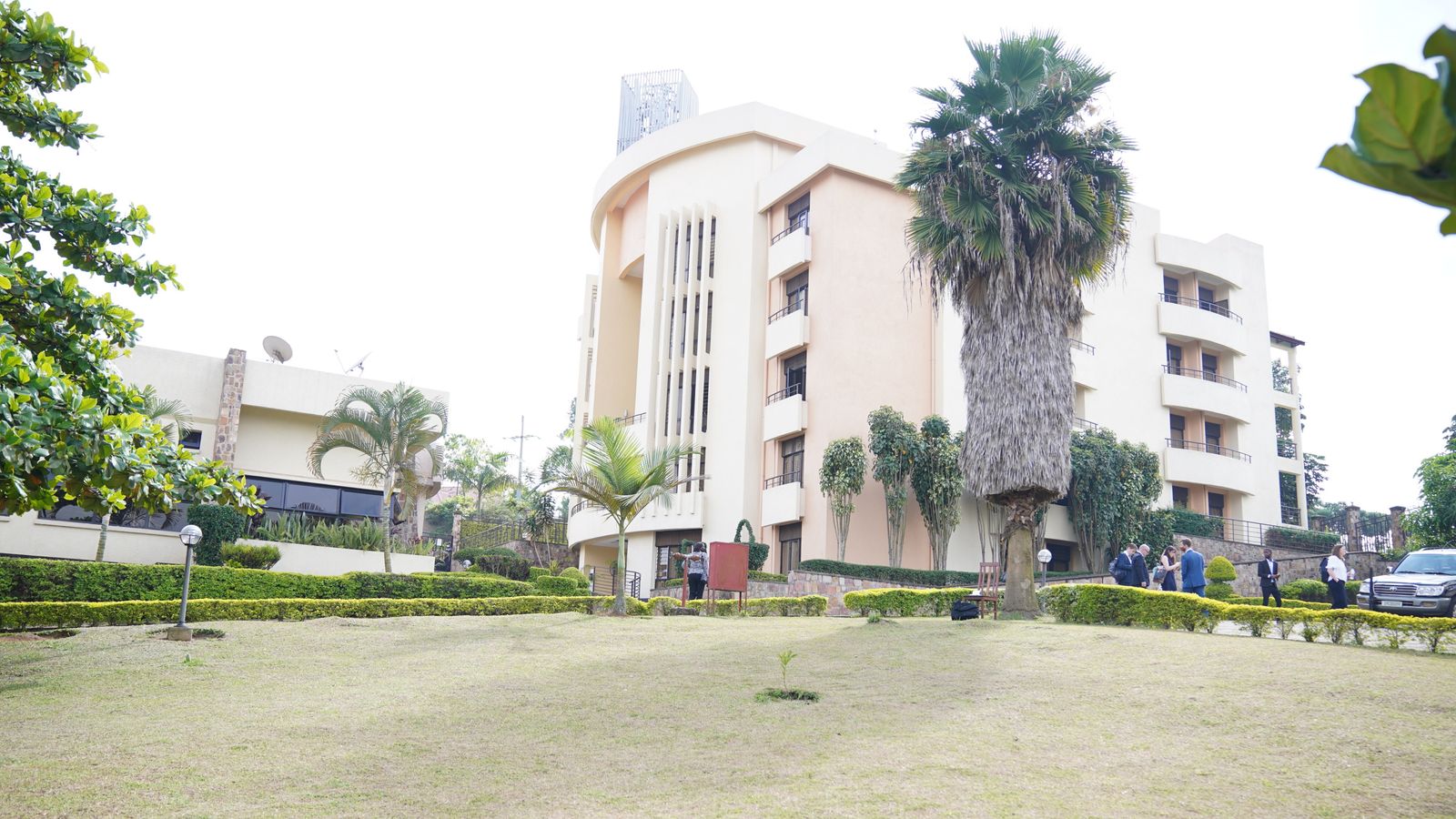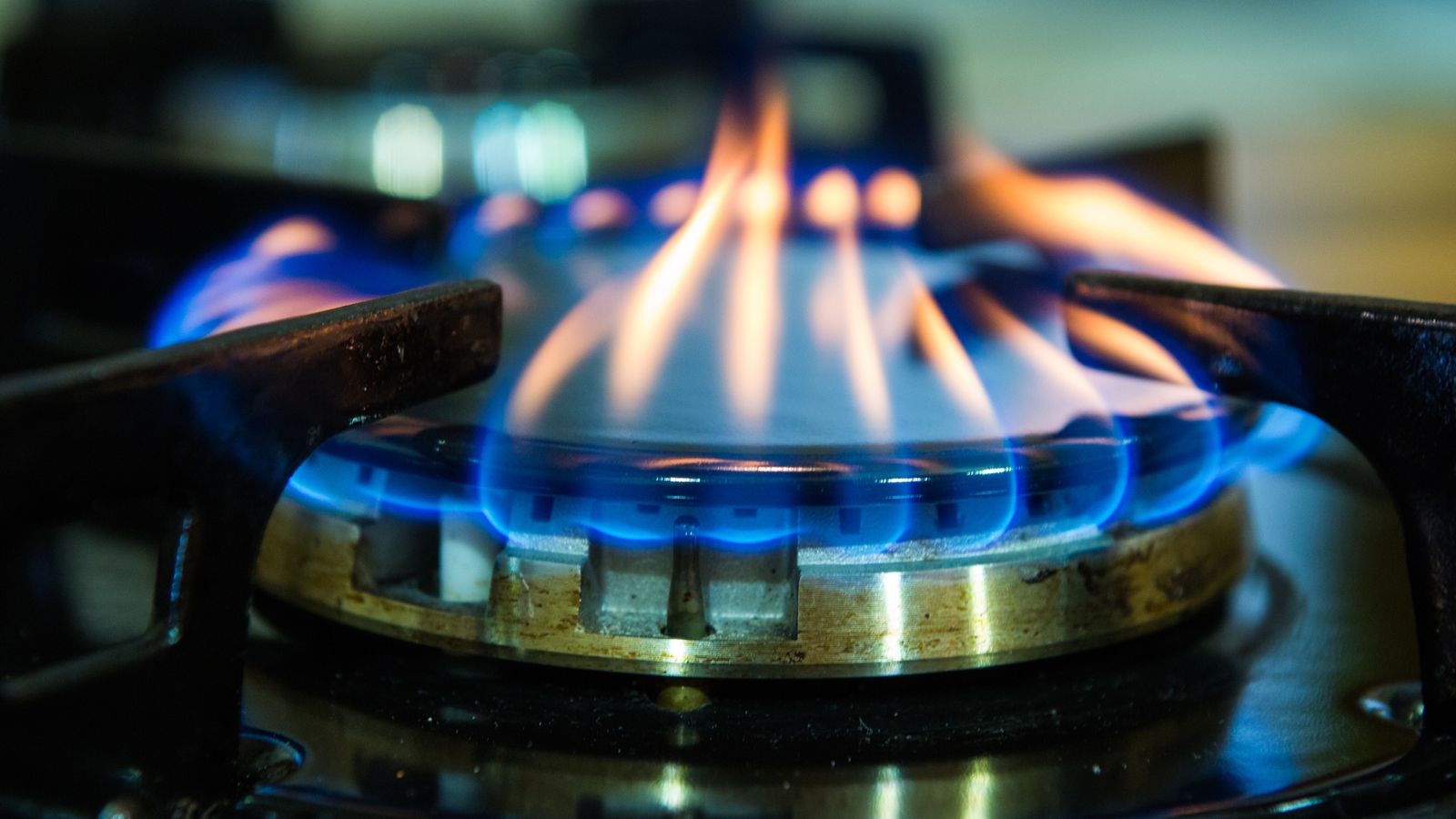Prime Minister Boris Johnson has laid out plans that will see migrants who arrive illegally in the UK sent more than 4,000 miles away to Rwanda.
The scheme, designed to provide “safe and legal routes for asylum while disrupting the business model of people smugglers”, has been described as “inhumane” and “cruel” by human rights organisations, who claims a similar offshore scheme in Australia has failed to curb numbers of arrivals.
Boris Johnson announces his plan to send migrants to Rwanda amid backlash – follow live updates
It comes as Border Force staff prepare for up to 60,000 migrants – double the amount from last year – to arrive on British shores in 2022.
Here Sky News looks at the government’s new Rwanda migration scheme and how it will work.
Where is Rwanda?
Rwanda is a landlocked country of around 12.5 million people in East Africa, bordering the Democratic Republic of Congo, Tanzania, Uganda and Burundi.
‘A really humane step forward’: Minister defends plan to send some asylum seekers to Rwanda
Migrant crisis: Home Office ‘planning to send migrants to Rwanda’ for processing
Channel crossings: More than 4,000 people cross to UK in small boats in 2022 – nearly four times the amount for same time last year
About 85% of the population are from the Hutu ethnic group, 14% are Tutsi and the remaining 1% are Twa.
In 1994 following an invasion by a rebel group of Tutsi refugees who had previously fled to Uganda, Hutu extremists slaughtered 800,000 people – mainly Tutsis and other political opponents – in a genocide campaign that lasted 100 days.
The Tutsi rebels – the Rwandan Patriotic Front (RPF) – eventually won the civil war and are still in power today, under the leadership of President Paul Kagame.
Mr Kagame’s government is authoritarian, with opposition parties only allowed at the last election in 2018.
According to Human Rights Watch the RPF “continues to target those perceived as a threat to government”.
It adds: “Arbitrary detention, ill-treatment, and torture in official and unofficial detention facilities is commonplace.
“The arbitrary detention and mistreatment of street children, sex workers and petty vendors also occurs widely.”
Since the genocide Rwanda has achieved sustained economic growth, relying heavily on investments from the International Monetary Fund, World Bank and other lenders.
Growth has been accompanied by an increase in living standards, with a two-thirds drop in childhood mortality and near universal primary school education.
But the coronavirus pandemic has hampered this and projected poverty rates are expected to increase again.
Why are migrants being sent there?
Despite millions of pounds being spent on various measures to curb the spiralling numbers of migrants crossing the Channel from France, they are still rising.
Speaking to Sky News last month, Border Force staff said they expect 60,000 to make the dangerous journey this year – more than double the 28,526 from last year.
Six hundred crossed the Dover Strait on Wednesday.
Speaking in Kent on Thursday, the prime minister said illegal migration has “bedevilled our country for too long” and has seen people smugglers turning the Channel into a “watery graveyard”.
Previous trials to turn back small boats to France have not been successful, he added, and while the UK tries to “negotiate a deal with France and the EU” to be able to do so, the Rwandan scheme is needed in the meantime.
Home Secretary Priti Patel struck the deal with Rwanda after previous failed attempts with Ghana and Albania.
News correspondent
This morning we got our first glimpse of the sort of accommodation asylum seekers who are flown to Rwanda will stay in.
The media pack were taken to a guest house built in 2014 about a mile from the centre of Kigali. Called the Hope Guest House, it is intended to fulfil the migrants’ basic needs while they wait for their claims to be processed.
There is a communal eating area where people will be served three meals a day, while there are 12 toilets and five showers for around 100 people and small bedrooms which are around 12 by 12 feet with two beds in each.
It’s stripped back and basic, but comfortable enough, which is what you’d expect.
What I found most interesting about being shown round the building though was what we didn’t see and the questions we didn’t have answered.
Britain has a growing backlog of asylum claims which has reached £1.5bn a year and if they want to use these accommodation blocks as a backstop, they’ll need to find more of them and scale up fast.
Government officials who took us round the accommodation in Kigali showed us a mini replica of what the block will look like when it’s finished.
They’re planning on building two more 50-room blocks in the compound, but when we asked when those would be finished, we didn’t get definite answer.
There is no doubt building enough accommodation fit for purpose in Rwanda will be huge challenge to go along with the considerable legal and moral challenges that go along with this proposal.
How will it work?
Mr Johnson revealed on Thursday that from today “anyone entering the UK illegally, as well as those who have arrived illegally since 1 January, may now be relocated to Rwanda”.
As part of a new “migration and economic partnership” with the country, he vowed to “swiftly and humanely remove them” from the UK.
Mr Johnson did not reveal what the criteria will be for those who are sent to Rwanda, but Welsh Secretary Simon Hart told Sky News it will be “vastly for male economic migrants”.
The PM confirmed they will not be kept in processing centres to be sent back if approved, but “given an opportunity to build a new life in that dynamic country” – or to be sent home to their country of origin.
Please use Chrome browser for a more accessible video player
He said that the migration route to Rwanda is “uncapped” and will be in place for the “foreseeable future”.
“Rwanda will have the capacity to resettle tens of thousands of people in the years ahead,” he said.
Initially it will cost around £120m, Mr Hart told Sky News earlier.
Asked about reports of human rights abuses in detention centres in Rwanda he described it as “one of the safest countries in the world… globally recognised for welcoming migrants”.
He said it had “totally transformed over the past few decades” and warned people against “stereotyping” it as a nation.
“We have a high degree of confidence about how people will be received in Rwanda,” he said, adding that the new scheme is the result of nine months of detailed preparations.
Quizzed on the costs of the new scheme, which some have estimated at more than £1m per person, he claimed the current cost of housing migrants in hotels is £5m a day.
‘Dark day in British history’
The new Rwandan schemes mirrors the offshore approach to immigration Australia has taken since 2001.
As part one of the toughest and most controversial refugee policies in the world, migrants have been taken to centres on Manus Island in Papua New Guinea and the Republic of Nauru.
Read more: Is the UK copying Australia’s hardline immigration policy?
The Papua New Guinea centre was forced to close last year after it was found to be “illegal” by the country’s supreme court following reports of ill-treatment.
But the centre in Nauru will continue to operate after Australia confirmed its immigration policy would remain offshore permanently.
Steve Valdez-Symonds, refugee and migrant rights director for Amnesty International UK, told Sky News there is “years of evidence” the Australian scheme “has done nothing to stop people coming to Australia seeking asylum”.
Please use Chrome browser for a more accessible video player
“It has inflicted a huge amount of cruelty on a relatively small number of people basically imprisoned for years and years on islands in the South Pacific and all at enormous cost to the Australian taxpayer,” he said.
“Why on earth this government thinks that we need to adopt some measure like this is beyond belief.”
Yasmin Ahmed, Human Rights Watch UK director, added: “This proposal is inhumane, unethical, and cruel.
“It is designed solely as a deterrent and to signal to refugees that they are no longer welcome. This is a dark day in British history and a terrible advert for so-called global Britain.”






